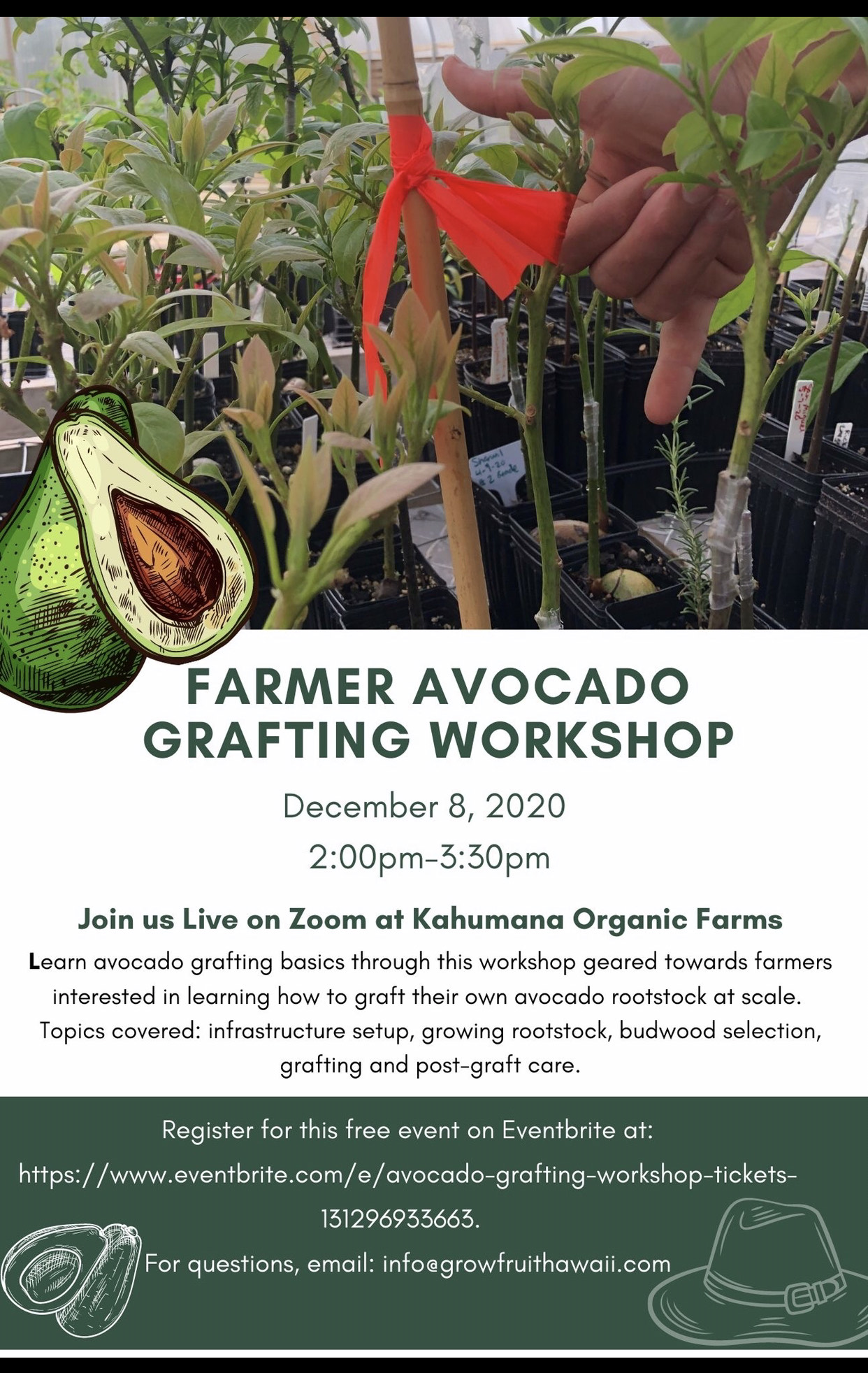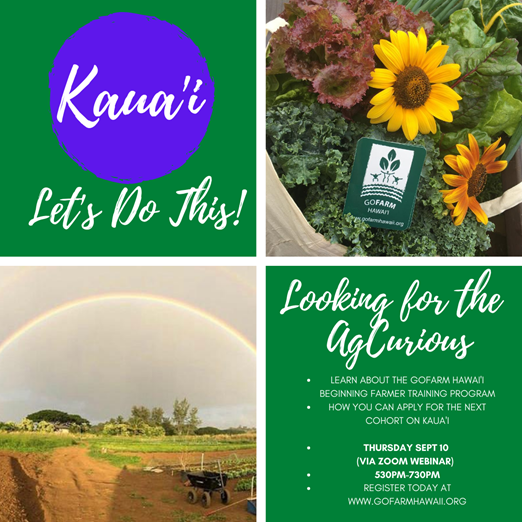By The Garden Island
HONOLULU – The State of Hawai‘i has been awarded $1.9 million by the U.S. Department of Agriculture (USDA) to increase the quality and quantity of locally grown foods in food-insecure communities that import a significant amount of food. The funds will provide grants to qualifying communities over a three-year period.
“This grant program will help support small-scale farming, ranching and agricultural operations so farmers can increase food production in their communities,” said Gov. Ige. “If we can boost food production in more remote areas where there is a greater need, Hawai‘i agriculture and entire communities will be strengthened.”
The Hawai‘i Department of Agriculture (HDOA) applied for the Micro-Grants for Food Security Program in August 2020 and was awarded a total of $1,938,556.80. The award was announced yesterday.
The grant program is not connected to the CARES Act and was established under the 2018 Farm Bill to provide support for small-scale gardening, herding and livestock operations to help produce food in areas that are food insecure.
In applying for the USDA grant, HDOA used data from the state’s Supplemental Nutrition Assistance Program (SNAP) to demonstrate the need in each county. The total grant amount will be distributed accordingly, to each county.
Those eligible for the grants include Hawai‘i-based individuals and organizations, commodity associations, agricultural cooperatives, producer groups, and other non-profit organizations related to agriculture.
Individuals (farmers, ranchers, producers, home gardeners, hunters) may apply for a maximum $5,000 per year for a maximum three years.
Organizations – Maximum $10,000 per year for a maximum of three years and must provide a 10 percent cash match.
A statewide Request for Proposals (RFP) will be issued in early November 2020 and posted on the Hawai‘i State Procurement website. A panel in each county will be appointed to review and approve eligible proposals.
Examples of the types of activities that may be funded under this grant include:
Small-Scale Gardening – purchase tools or equipment, soil, seeds, plants, canning equipment, refrigeration, composting equipment, towers, hydroponic and aeroponic farming.
Small-Scale Herding and Livestock Operations – purchase animals, buy, erect or repair fencing for livestock, activities or supplies associated with setting up or equipping a slaughter and processing facility, including purchasing mobile slaughterhouses.
Expanding Access to Food and Knowledge of Food Security – create or expand avenues for the sale of food commodities – includes paying for shipping of purchased items related to growing or raising food for local consumption.
HDOA’s Market Development Branch will be scheduling webinars in the near future to guide interested parties through the application process. The webinar schedule will be posted at: http://hdoa.hawaii.gov/add/md/


